Kolam is a Sri Lankan inherited traditional classical performance art that consists of four main characters: human characters, raksha (King Ravana’s warriors), imaginary characters, and animal characters. The specialty of this art is that each character has an individual mask, and all female characters are performed by male artists. A special kind of drum known as “Yak beraya” is beaten, and the performance is based on the rhythm. Furthermore, traditional kolam consists of mask carving, mask painting, musical instruments & drums, singing, and costume designing.
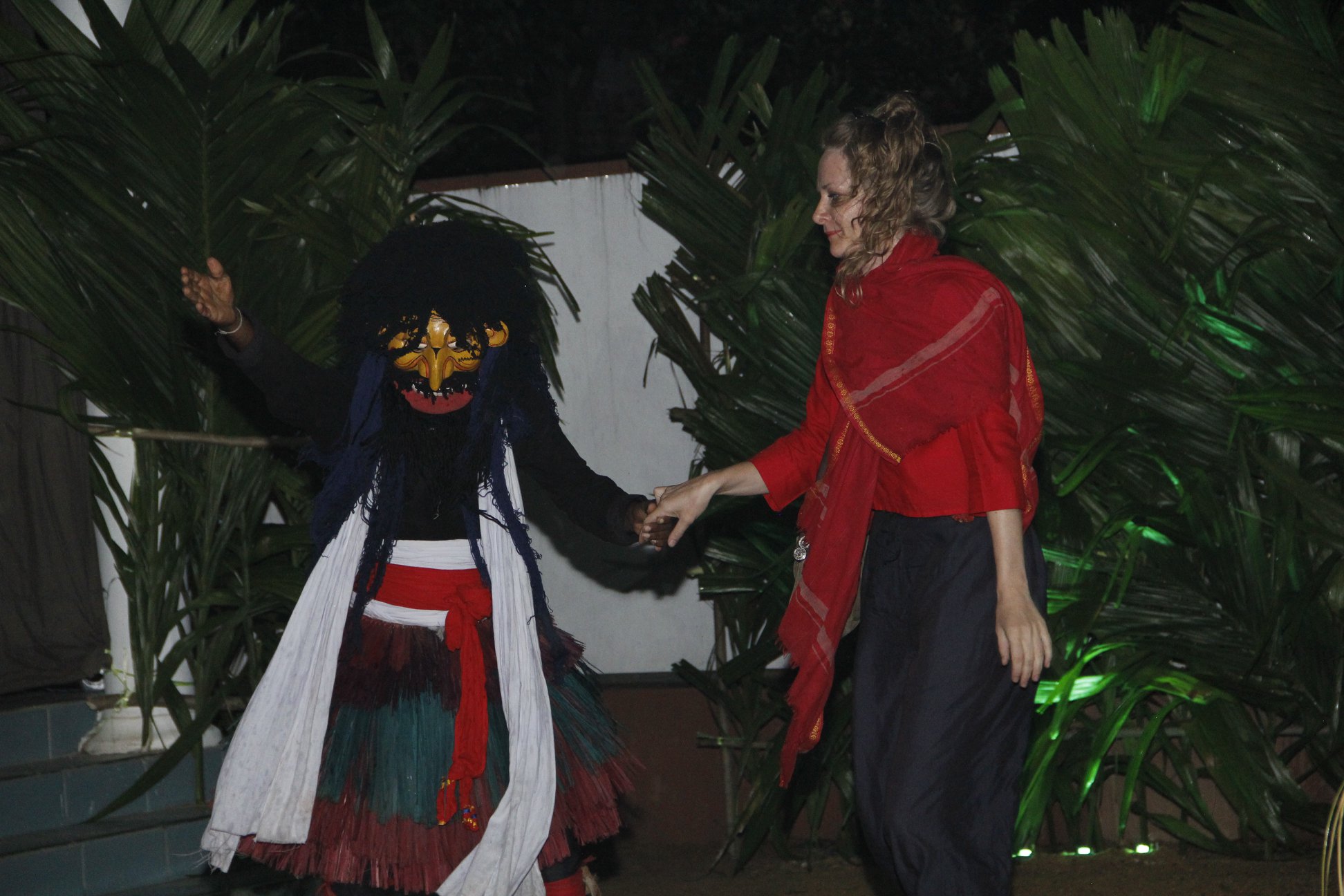
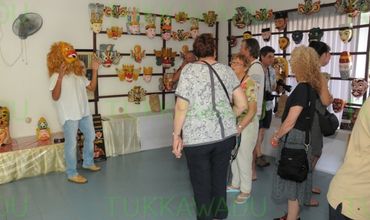
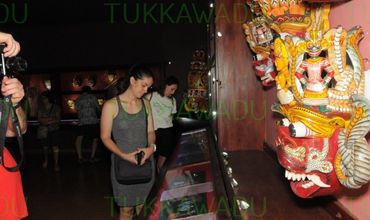
With written records dating back to 1800, the originator and the oldest existing family of Kolam is the Tukka Wadu lineage family in Ambalangoda, Sri Lanka. From carving the masks to staging the performance, Tukka Wadu family is continuing the tradition and originality without being subjected to modification or alteration. The oldest set of Tukka Wadu kolam masks records a history of 250 years and are still being displayed at national and international museums.
In appreciation of their immense contribution to preserving Sri Lankan heritage, seven members of the Tukka Wadu dancing group have been awarded with the “Kala Bhooshana” state award. With the aim of extending opportunities to learn and to sustain this traditional Kolam art, the “Conservation Center for Traditional Kolam Masks and Dance” was formed under the sponsorship of the Sri Lankan government in Maha-Ambalangoda.
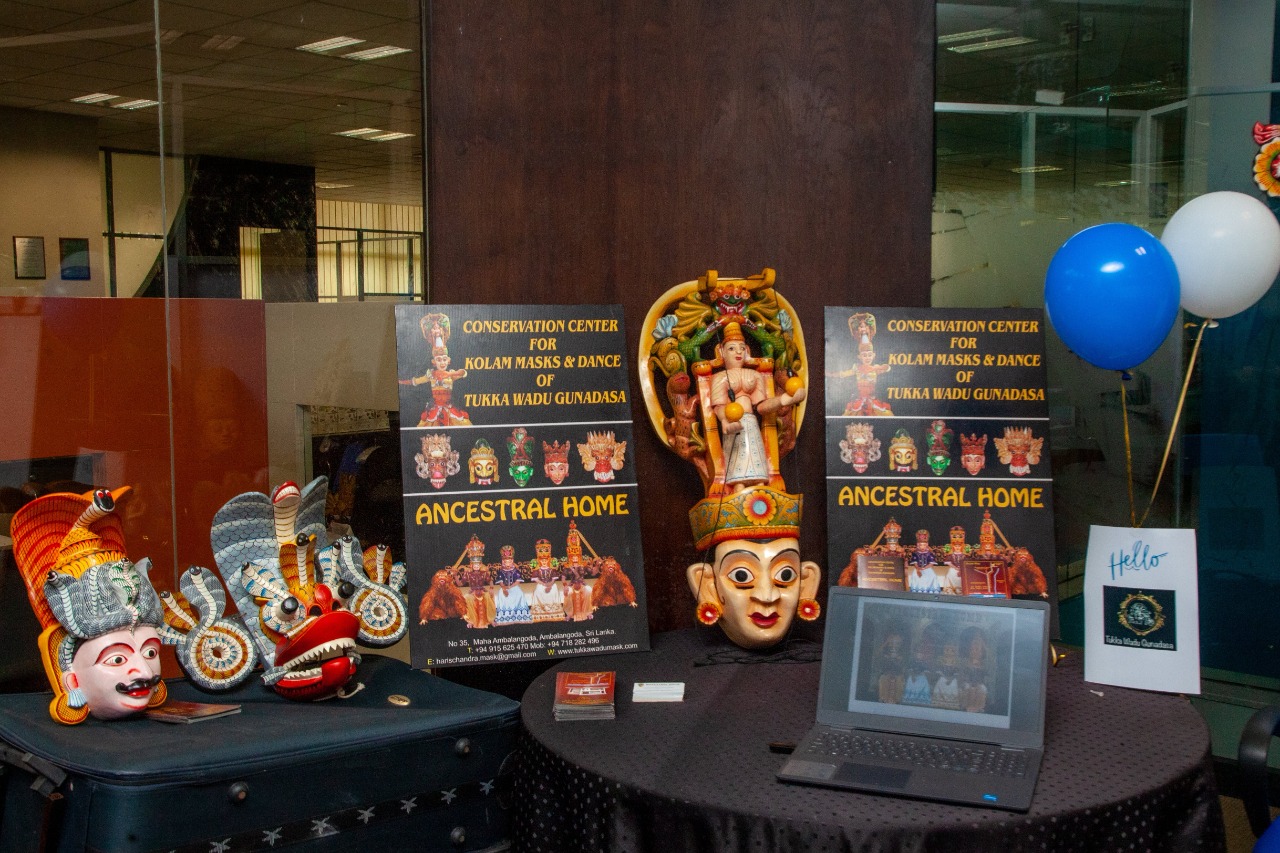
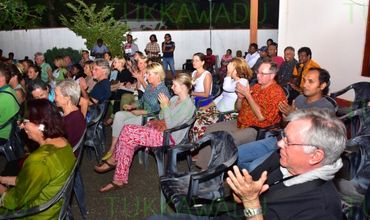
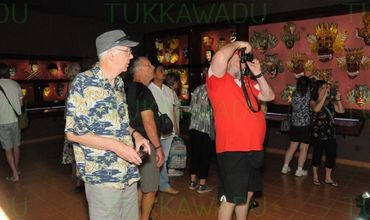
A mask museum, a mask carving workshop, a traditional dancing and instrument arm, a cultural show center, and a souvenir corner are all part of the conservation center. At the Tukka wadu kolam mask center in Ambalangoda, visitors can have a great time painting masks and enjoying a cultural performance that is unique to Sri Lanka. You can check with your travel advisor to help you plan a tour during your next visit to Sri Lanka.
